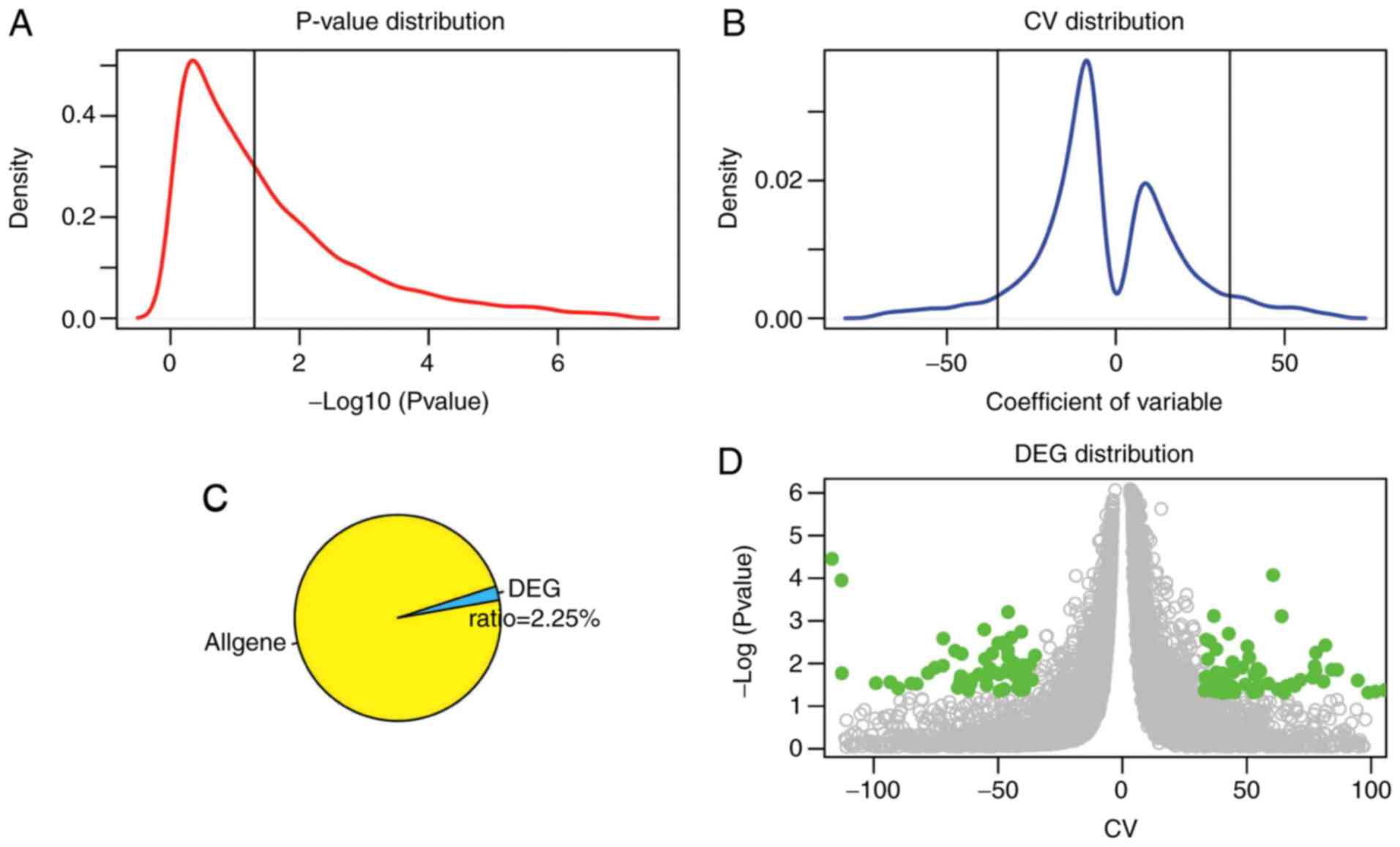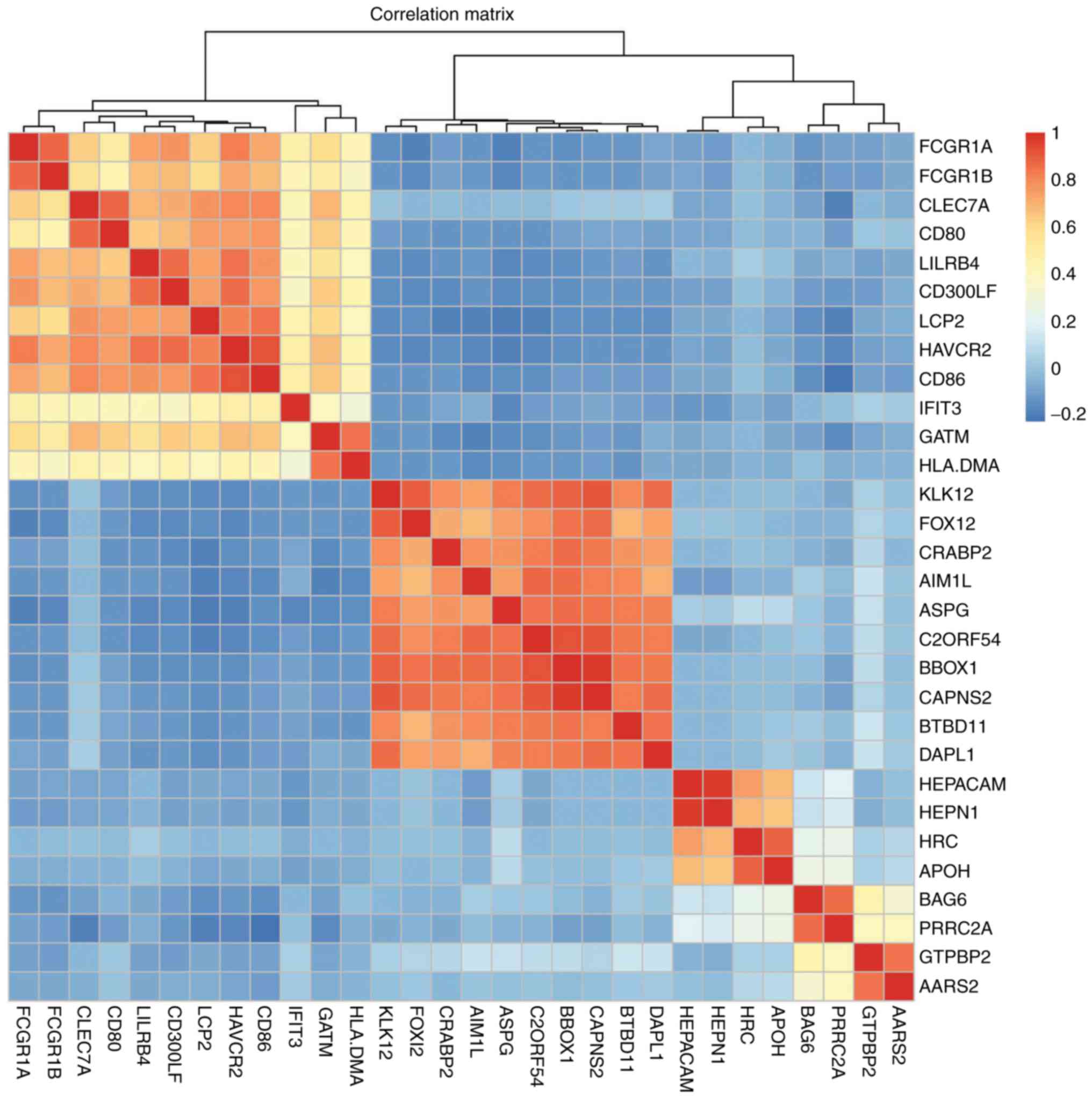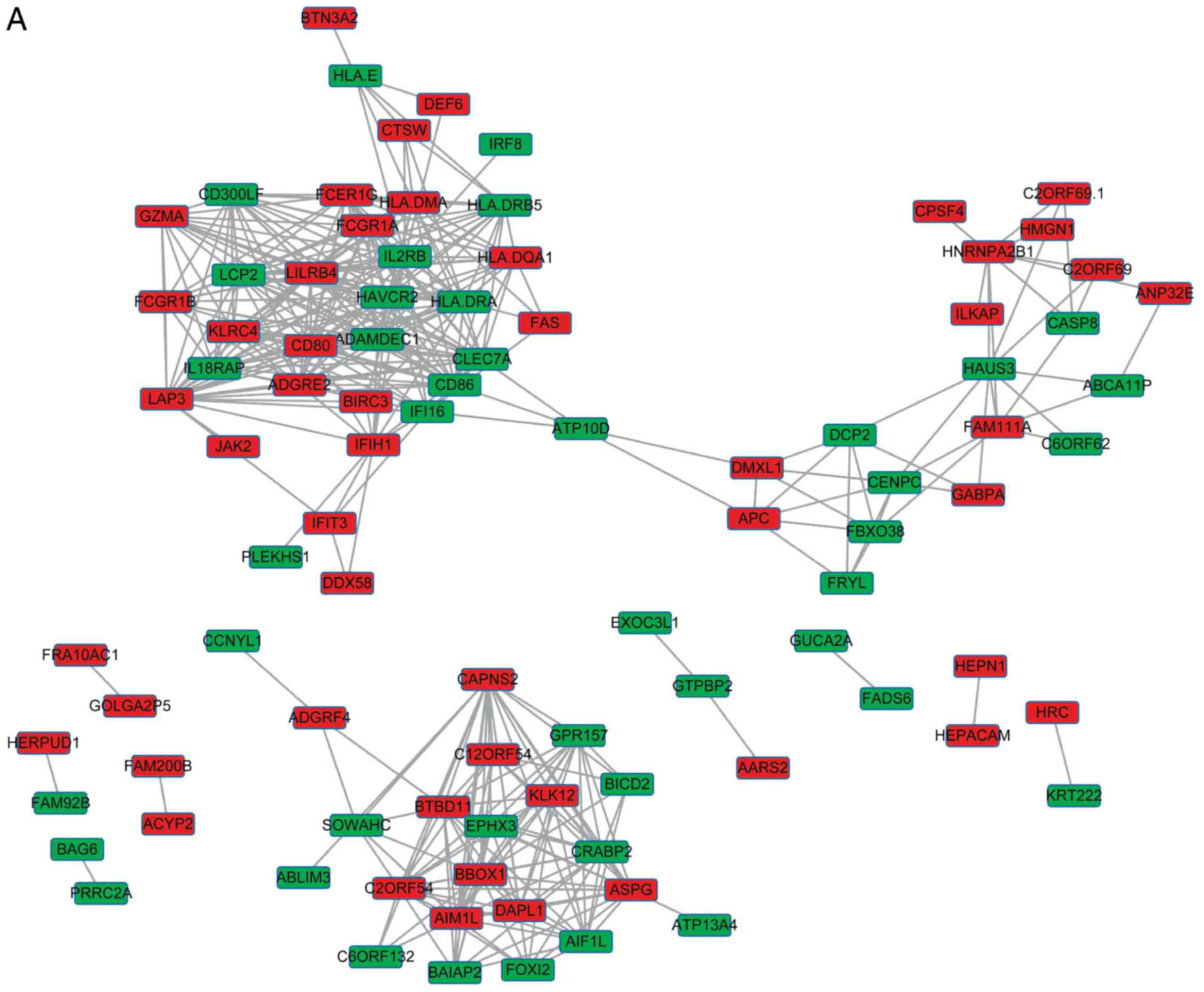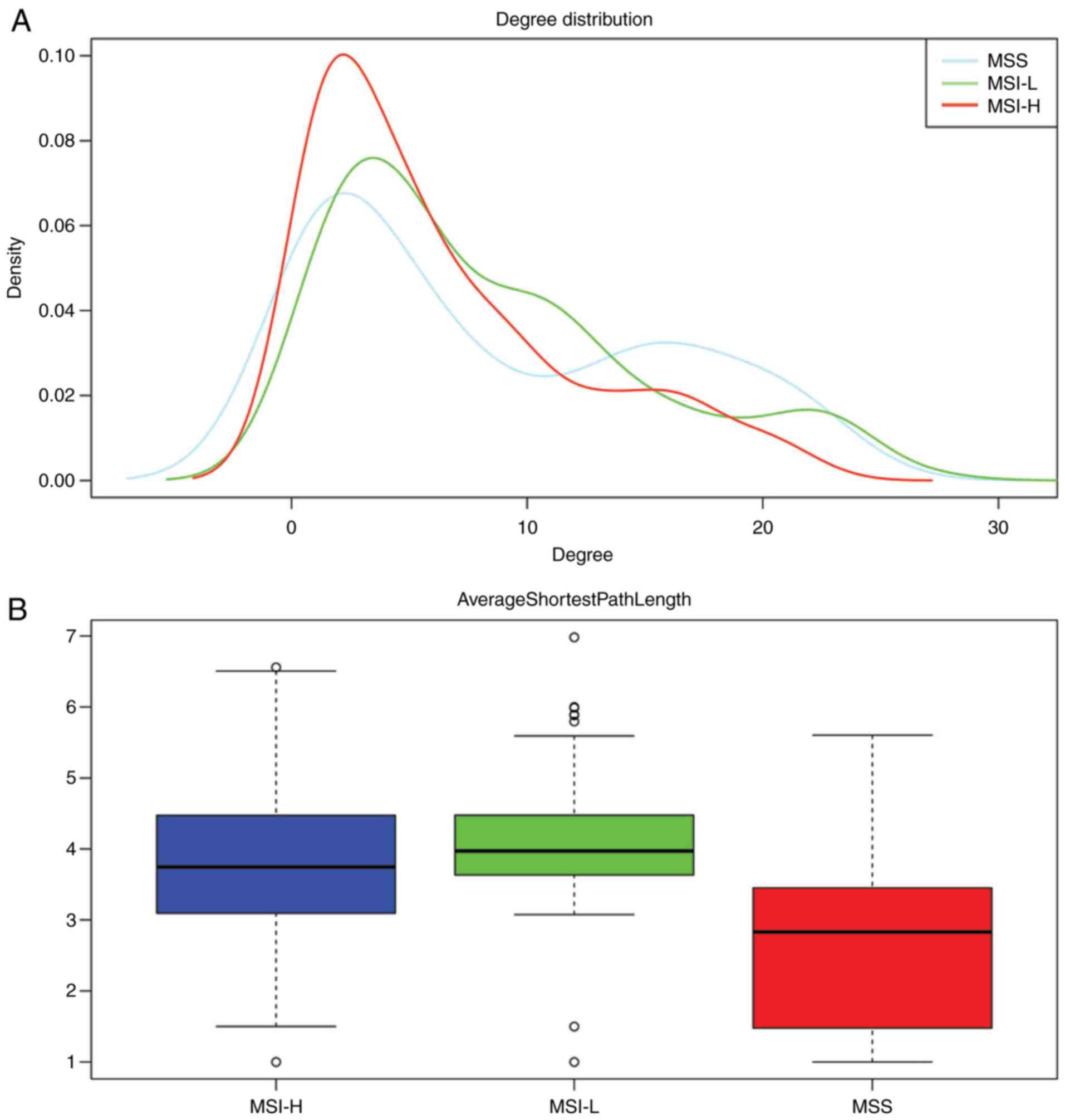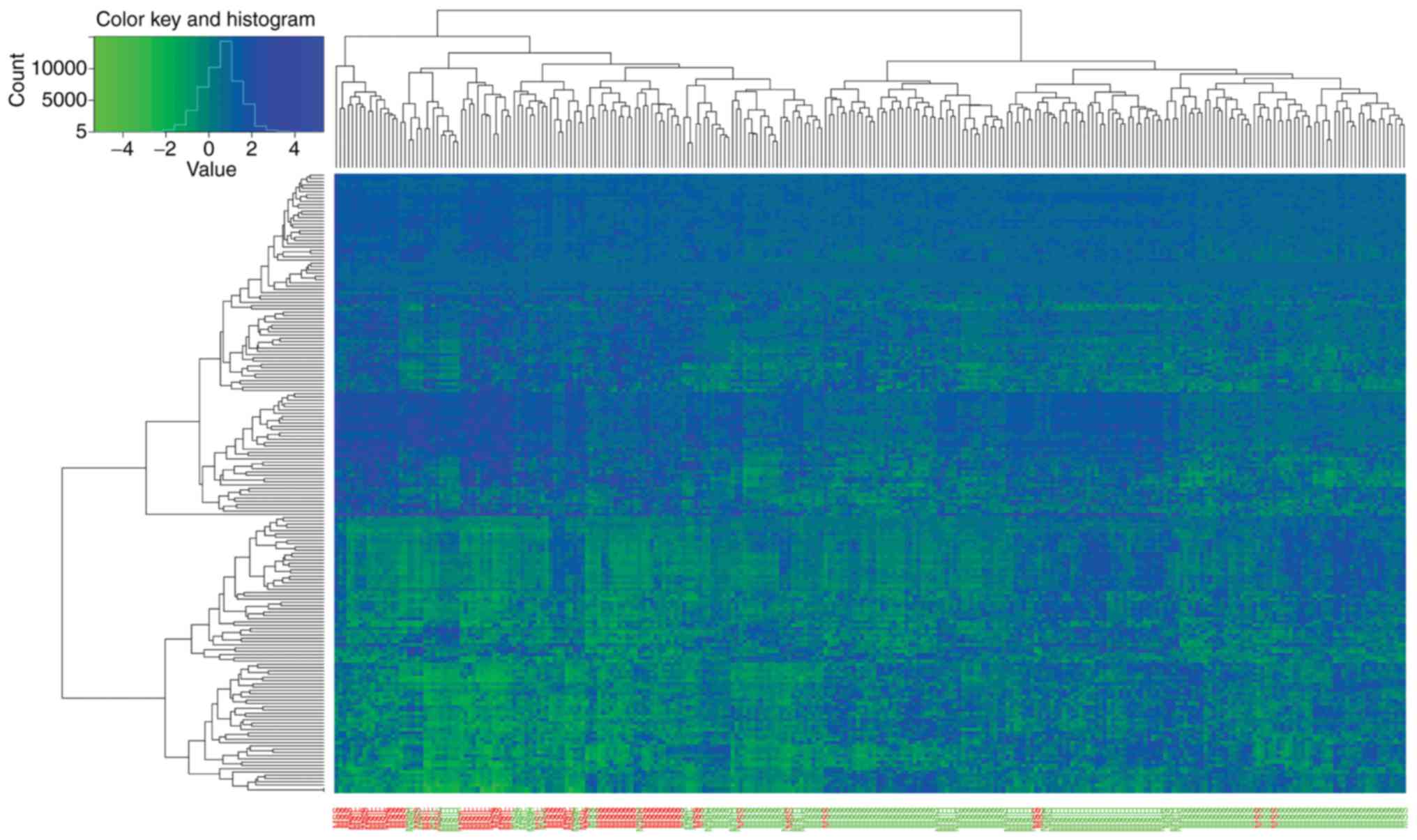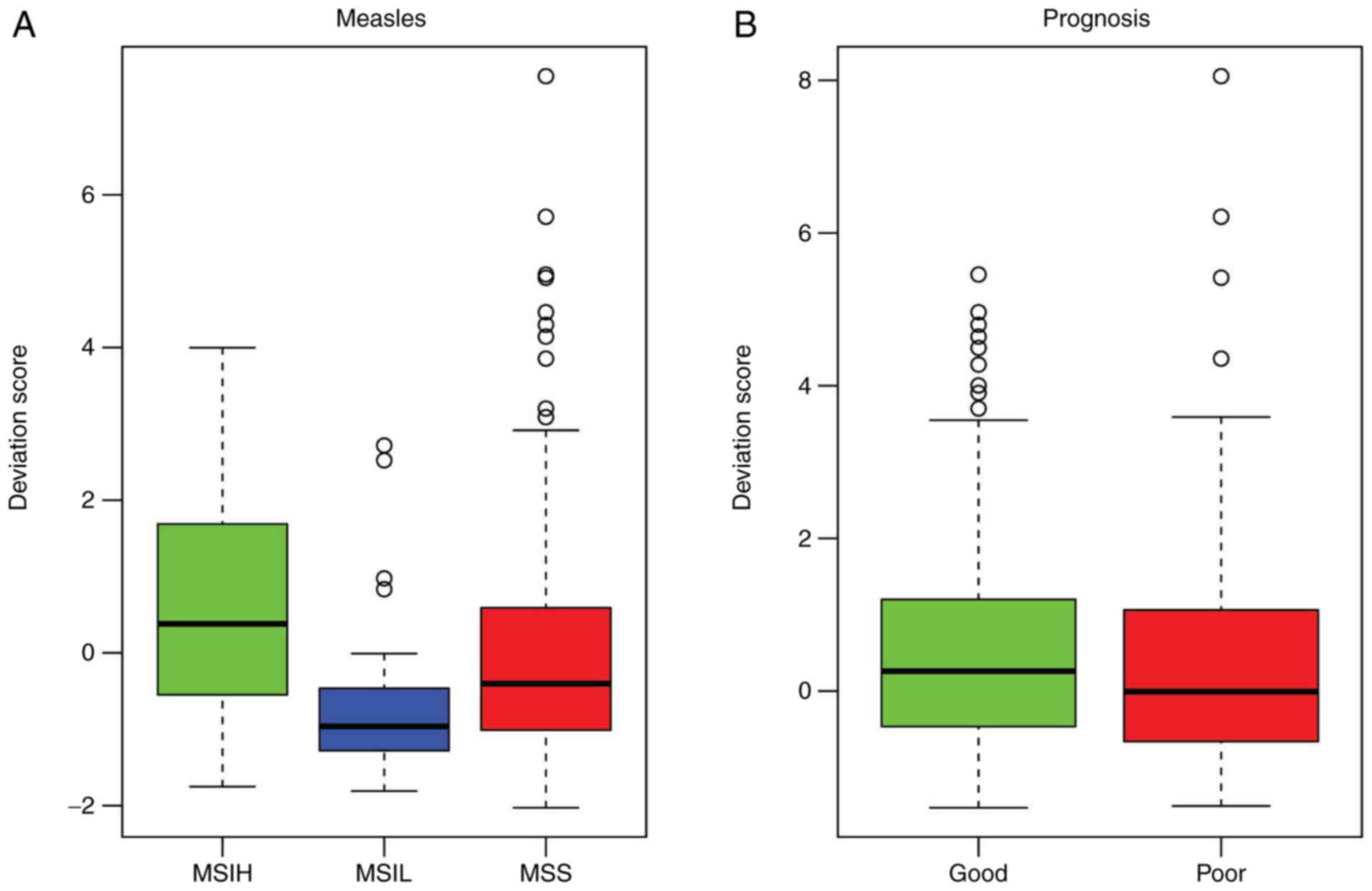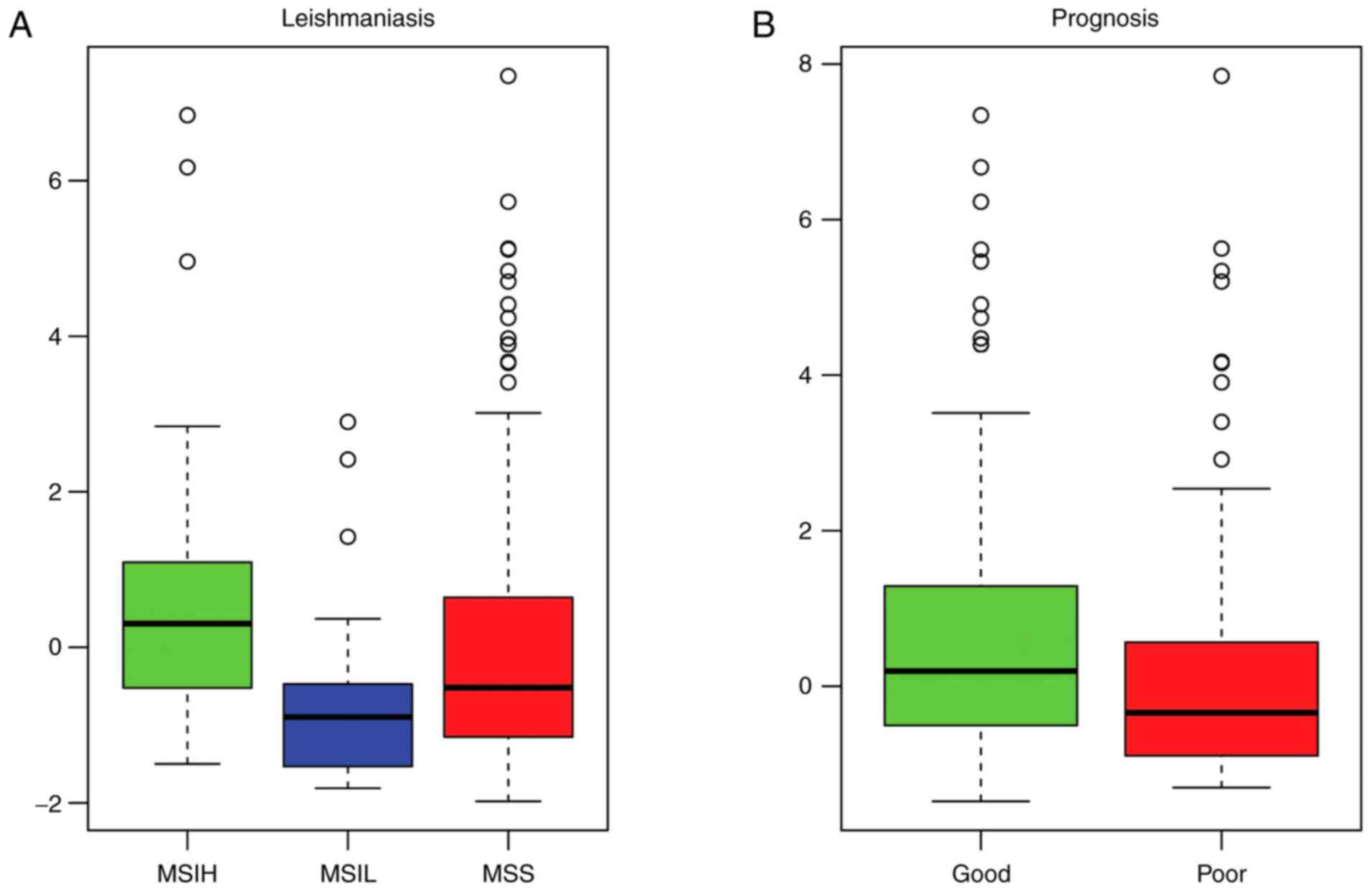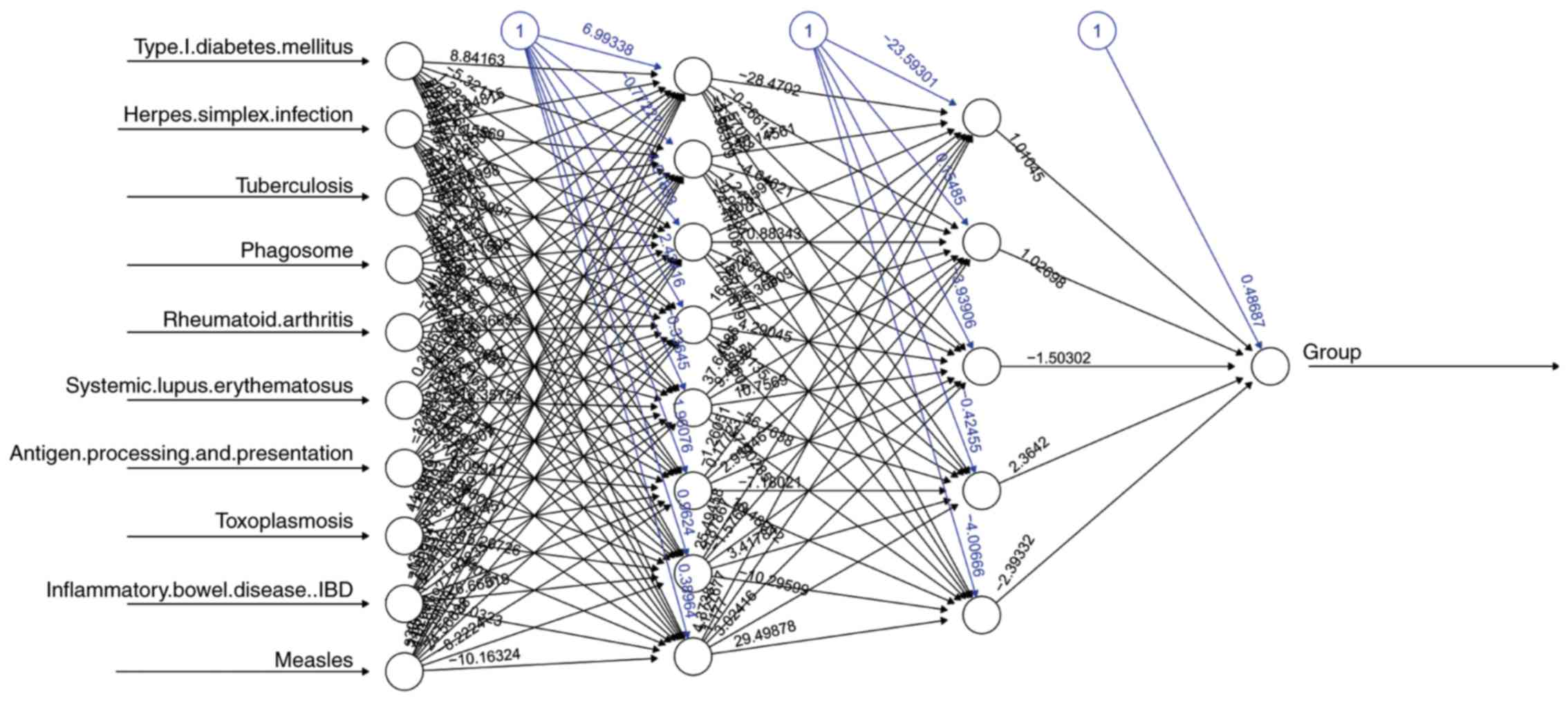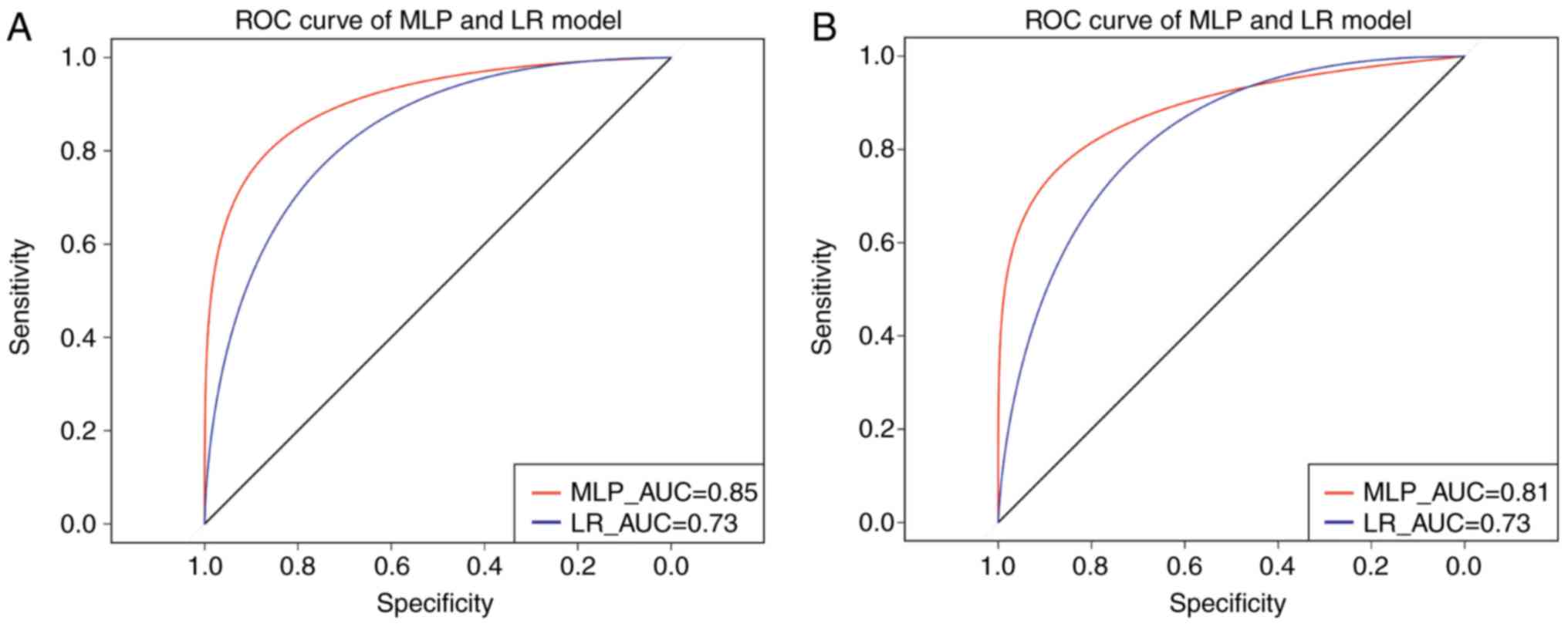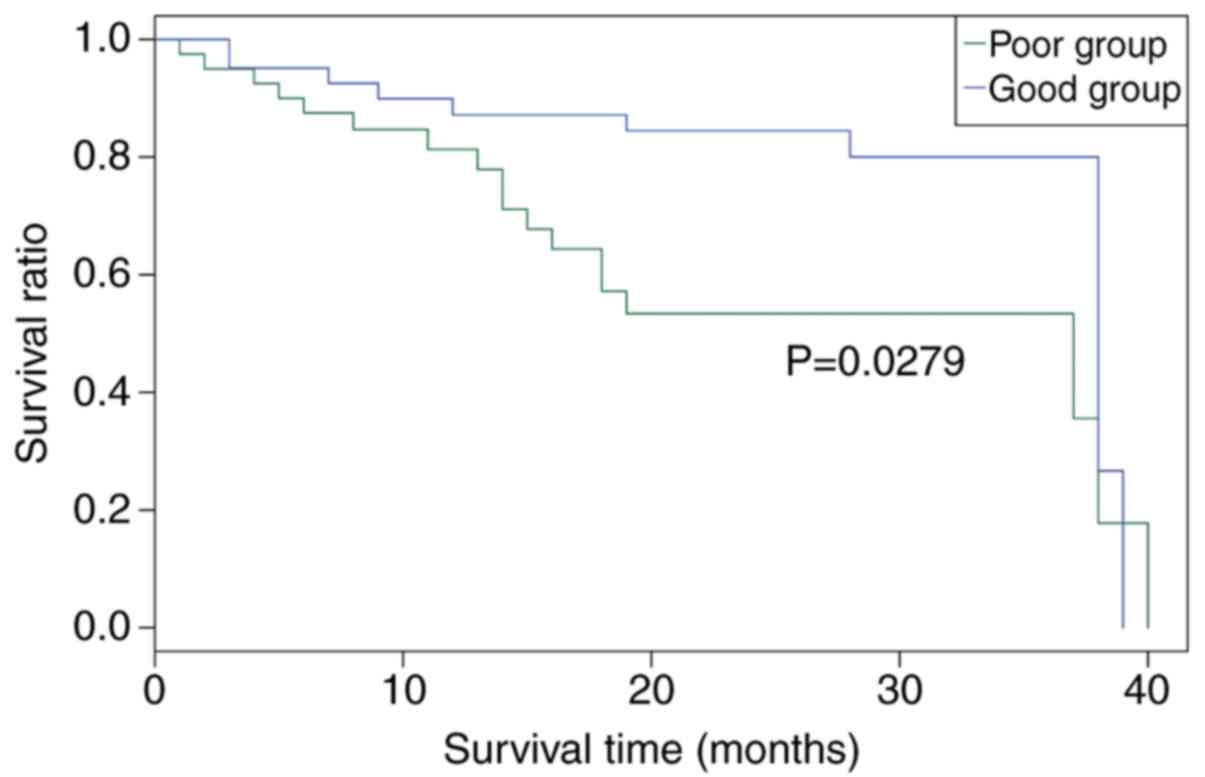|
1
|
Yamamoto H, Adachi Y, Taniguchi H,
Kunimoto H, Nosho K, Suzuki H and Shinomura Y: Interrelationship
between microsatellite instability and microRNA in gastrointestinal
cancer. World J Gastroenterol. 18:2745–2755. 2012. View Article : Google Scholar : PubMed/NCBI
|
|
2
|
Yamamoto H and Imai K: Microsatellite
instability: An update. Arch Toxicol. 89:899–921. 2015. View Article : Google Scholar : PubMed/NCBI
|
|
3
|
Imai K and Yamamoto H: Carcinogenesis and
microsatellite instability: The interrelationship between genetics
and epigenetics. Carcinogenesis. 29:673–680. 2008. View Article : Google Scholar
|
|
4
|
Kang J, Lee HW, Kim IK, Kim NK, Sohn SK
and Lee KY: Clinical implications of microsatellite instability in
T1 colorectal cancer. Yonsei Med J. 56:175–181. 2015. View Article : Google Scholar
|
|
5
|
Boland CR and Goel A: Microsatellite
instability in colorectal cancer. Gastroenterology. 138:2073–2087.
2010. View Article : Google Scholar : PubMed/NCBI
|
|
6
|
Caliman LP, Tavares RL, Piedade JB and DE
Assis AC: Evaluation of microsatellite instability in women with
epithelial ovarian cancer. Oncol Lett. 4:556–560. 2012. View Article : Google Scholar : PubMed/NCBI
|
|
7
|
Torre LA, Bray F, Siegel RL, Ferlay J,
Lortet-Tieulent J and Jemal A: Global cancer statistics, 2012. CA
Cancer J Clin. 65:87–108. 2015. View Article : Google Scholar : PubMed/NCBI
|
|
8
|
Li B, Liu HY, Guo SH, Sun P, Gong FM and
Jia BQ: Microsatellite instability of gastric cancer and
precancerous lesions. Int J Clin Exp Med. 8:21138–21144. 2015.
|
|
9
|
Sugimoto R, Sugai T, Habano W, Endoh M,
Eizuka M, Yamamoto E, Uesugi N, Ishida K, Kawasaki T, Matsumoto T
and Suzuki H: Clinicopathological and molecular alterations in
early gastric cancers with the microsatellite instability-high
phenotype. Int J Cancer. 138:1689–1697. 2016. View Article : Google Scholar
|
|
10
|
Choi YY, Bae JM, An JY, Kwon IG, Cho I,
Shin HB, Eiji T, Aburahmah M, Kim HI, Cheong JH, et al: Is
microsatellite instability a prognostic marker in gastric cancer? A
systematic review with meta-analysis. J Surg Oncol. 110:129–135.
2014. View Article : Google Scholar : PubMed/NCBI
|
|
11
|
Marrelli D, Polom K, Pascale V, Vindigni
C, Piagnerelli R, De Franco L, Ferrara F, Roviello G, Garosi L,
Petrioli R and Roviello F: Strong prognostic value of
microsatellite instability in intestinal type non-cardia gastric
cancer. Ann Surg Oncol. 23:943–950. 2016. View Article : Google Scholar
|
|
12
|
An JY, Kim H, Cheong JH, Hyung WJ, Kim H
and Noh SH: Microsatellite instability in sporadic gastric cancer:
Its prognostic role and guidance for 5-FU based chemotherapy after
R0 resection. Int J Cancer. 131:505–511. 2012. View Article : Google Scholar
|
|
13
|
San Segundo E, Tsanas A and Gómez-Vilda P:
Euclidean distances as measures of speaker dissimilarity including
identical twin pairs: A forensic investigation using source and
filter voice characteristics. Forensic Sci Int. 270:25–38. 2017.
View Article : Google Scholar :
|
|
14
|
Ahmed S, Brennan L, Eppig J, Price CC,
Lamar M, Delano-Wood L, Bangen KJ, Edmonds EC, Clark L, Nation DA,
et al: Visuoconstructional impairment in subtypes of mild cognitive
impairment. Appl Neuropsychol Adult. 23:43–52. 2016. View Article : Google Scholar
|
|
15
|
Ritchie ME, Phipson B, Wu D, Hu Y, Law CW,
Shi W and Smyth GK: Limma powers differential expression analyses
for RNA-sequencing and microarray studies. Nucleic Acids Res.
43:e472015. View Article : Google Scholar : PubMed/NCBI
|
|
16
|
Liu AN, Wang LL, Li HP, Gong J and Liu XH:
Correlation between posttraumatic growth and posttraumatic stress
disorder symptoms based on Pearson correlation coefficient: A
meta-analysis. J Nerv Ment Dis. 250:380–389. 2017. View Article : Google Scholar
|
|
17
|
Van Parys T, Melckenbeeck I, Houbraken M,
Audenaert P, Colle D, Pickavet M, Demeester P and Van de Peer Y: A
cytoscape app for motif enumeration with ISMAGS. Bioinformatics.
33:461–463. 2017.PubMed/NCBI
|
|
18
|
Dennis G Jr, Sherman BT, Hosack DA, Yang
J, Gao W, Lane HC and Lempicki RA: DAVID: Database for annotation,
visualization, and integrated discovery. Genome Biol. 4:32003.
View Article : Google Scholar
|
|
19
|
Wu T, Wang X, Li J, Song X, Wang Y, Wang
Y, Zhang L, Li Z and Tian J: Identification of personalized
chemoresistance genes in subtypes of basal-like breast cancer based
on functional differences using pathway analysis. Plos One.
10:e01311832015. View Article : Google Scholar : PubMed/NCBI
|
|
20
|
Cangelosi D, Pelassa S, Morini M, Conte M,
Bosco MC, Eva A, Sementa AR and Varesio L: Artificial neural
network classifier predicts neuroblastoma patients' outcome. Bmc
Bioinformatics. 17:3472016. View Article : Google Scholar
|
|
21
|
Galdino L, Semrau D, Lavery D, Saavedra G,
Czegledi CB, Agrell E, Killey RI and Bayvel P: On the limits of
digital back-propagation in the presence of transceiver noise. Opt
Express. 25:4564–4578. 2017. View Article : Google Scholar : PubMed/NCBI
|
|
22
|
Wang K, Yuen ST, Xu J, Lee SP, Yan HH, Shi
ST, Siu HC, Deng S, Chu KM, Law S, et al: Whole-genome sequencing
and comprehensive molecular profiling identify new driver mutations
in gastric cancer. Nat Genet. 46:573–582. 2014. View Article : Google Scholar : PubMed/NCBI
|
|
23
|
Carpenter J and Bithell J: Bootstrap
confidence intervals: When, which, what? A practical guide for
medical statisticians. Stat Med. 19:1141–1164. 2000. View Article : Google Scholar : PubMed/NCBI
|
|
24
|
Carlone M, Cruje C, Rangel A, McCabe R,
Nielsen M and Macpherson M: ROC analysis in patient specific
quality assurance. Med Phys. 40:0421032013. View Article : Google Scholar : PubMed/NCBI
|
|
25
|
Robin X, Turck N, Hainard A, Tiberti N,
Lisacek F, Sanchez JC and Müller M: pROC: An open-source package
for R and S+ to analyze and compare ROC curves. BMC Bioinformatics.
12:772011. View Article : Google Scholar : PubMed/NCBI
|
|
26
|
Falchetti M, Saieva C, Lupi R, Masala G,
Rizzolo P, Zanna I, Ceccarelli K, Sera F, Mariani-Costantini R,
Nesi G, et al: Gastric cancer with high-level microsatellite
instability: Target gene mutations, clinicopathologic features, and
long-term survival. Hum Pathol. 39:925–932. 2008. View Article : Google Scholar : PubMed/NCBI
|
|
27
|
Beghelli S, de Manzoni G, Barbi S,
Tomezzoli A, Roviello F, Di Gregorio C, Vindigni C, Bortesi L,
Parisi A, Saragoni L, et al: Microsatellite instability in gastric
cancer is associated with better prognosis in only stage II
cancers. Surgery. 139:347–356. 2006. View Article : Google Scholar : PubMed/NCBI
|
|
28
|
Deng Q, He B, Liu X, Yue J, Ying H, Pan Y,
Sun H, Chen J, Wang F, Gao T, et al: Prognostic value of
pre-operative inflammatory response biomarkers in gastric cancer
patients and the construction of a predictive model. J Transl Med.
13:162015. View Article : Google Scholar
|
|
29
|
Bornschein J, Kandulski A, Selgrad M and
Malfertheiner P: From gastric inflammation to gastric cancer. Dig
Dis. 28:609–614. 2010. View Article : Google Scholar
|
|
30
|
Kim SY, Park C, Kim HJ, Park J, Hwang J,
Kim JI, Choi MG, Kim S, Kim KM and Kang MS: Deregulation of immune
response genes in patients with Epstein-Barr virus-associated
gastric cancer and outcomes. Gastroenterology. 148:137–147. 2015.
View Article : Google Scholar
|
|
31
|
Nissen LH, Assendorp EL, van der Post RS,
Derikx LA, de Jong DJ, Kievit W, Pierik M, van den Heuvel T,
Verhoeven R, Overbeek LI, et al: Impaired gastric cancer survival
in patients with inflammatory bowel disease. J Gastrointestin Liver
Dis. 25:431–440. 2016.PubMed/NCBI
|
|
32
|
Ribeiro CH, Kramm K, Gálvez-Jirón F, Pola
V, Bustamante M, Contreras HR, Sabag A, Garrido-Tapia M, Hernández
CJ, Zúñiga R, et al: Clinical significance of tumor expression of
major histocompatibility complex class I-related chains A and B
(MICA/B) in gastric cancer patients. Oncol Rep. 35:1309–1317. 2016.
View Article : Google Scholar :
|
|
33
|
Judd LM, Menheniott TR, Ling H, Jackson
CB, Howlett M, Kalantzis A, Priebe W and Giraud AS: Inhibition of
the JAK2/STAT3 pathway reduces gastric cancer growth in vitro and
in vivo. Plos One. 9:e959932014. View Article : Google Scholar : PubMed/NCBI
|
|
34
|
Xu Y, Zhou T, Si J and Wei Z: Inhibition
of migration and invasion of gastric cancer cells by
snail-regulated MiR-375 through JAK2 targeting. J Clin Oncol.
32:562014. View Article : Google Scholar
|
|
35
|
Neumann L, Pforr C, Beaudouin J, Pappa A,
Fricker N, Krammer PH, Lavrik IN and Eils R: Dynamics within the
CD95 death-inducing signaling complex decide life and death of
cells. Mol Syst Biol. 6:3522010. View Article : Google Scholar : PubMed/NCBI
|
|
36
|
Soung YH, Lee JW, Kim SY, Jang J, Park YG,
Park WS, Nam SW, Lee JY, Yoo NJ and Lee SH: CASPASE-8 gene is
inactivated by somatic mutations in gastric carcinomas. Cancer Res.
65:815–821. 2005.PubMed/NCBI
|
|
37
|
Yang Y, Zhao Q, Cai Z, Cheng G, Chen M,
Wang J and Zhong H: Fas signaling promotes gastric cancer
metastasis through STAT3-dependent upregulation of fascin. Plos
One. 10:e01251322015. View Article : Google Scholar : PubMed/NCBI
|
|
38
|
Wang X, Fu Z, Chen Y and Liu L: Fas
expression is downregulated in gastric cancer. Mol Med Rep.
15:627–634. 2016. View Article : Google Scholar : PubMed/NCBI
|
|
39
|
Bazzani A, Bevilacqua A, Bollini D,
Brancaccio R, Campanini R, Lanconelli N, Riccardi A and Romani D:
An SVM classifier to separate false signals from
microcalcifications in digital mammograms. Phys Med Biol.
46:1651–1663. 2001. View Article : Google Scholar : PubMed/NCBI
|















